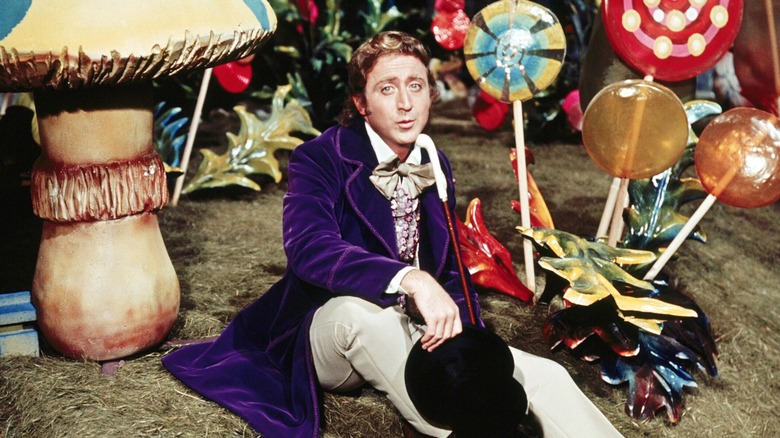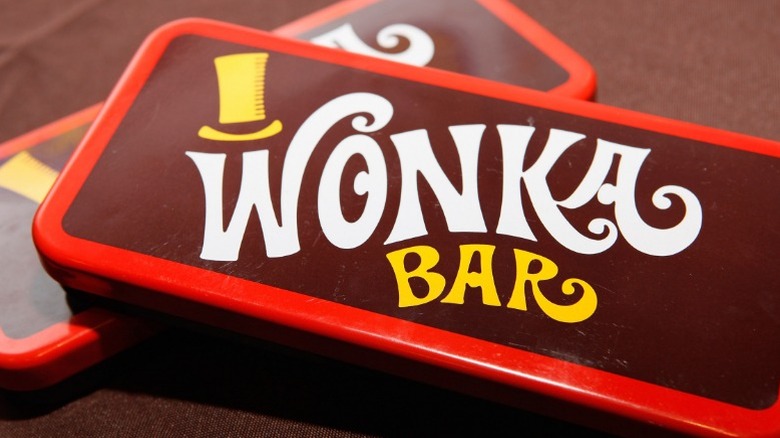Why Quaker Oats Made The Willy Wonka & The Chocolate Factory Movie
If Willy Wonka and his wondrous candy company existed in real life, they would probably be hit with a bevy of lawsuits vis-a-vis child endangerment and Oompa Loompa trafficking. Setting that aside, if Wonka's company did exist, Quaker Oats would be its polar opposite. The Wonka Chocolate Factory produces an array of fantastical sweets, sold by a lovably eccentric fellow with a purple coat and a twinkle in his eye. (Whether he takes the form of Gene Wilder or Timothee Chalamet depends upon your taste; either is perfectly valid, so long as he's not Johnny Depp.) Quaker Oats, on the other hand, produces oats for a sensible breakfast, sold by the famous food mascot, a man in a powdered wig (who is pointedly not William Penn), and the gruff, authoritative character actor Wilford Brimley. (We mean no disrespect to the late actor and diabetes spokesperson, who was great in "The Thing.")
Yet despite this seeming incompatibility, it was Quaker Oats that brought the classic film "Willy Wonka & the Chocolate Factory" into the world. When Mel Stuart, the movie's eventual director, approached producer David Wolper with the idea of adapting Roald Dahl's "Charlie and the Chocolate Factory," Wolper got in touch with Quaker Oats, who wanted to branch out into making candy. He suggested they fund the film and create a tie-in line of Wonka candy bars. Quaker was game, and fully funded the movie — so long as the name was changed to "Willy Wonka & the Chocolate Factory," for the sake of that sweet, sweet brand synergy.
A sour story with a sweet ending
Despite the auspicious start, production was far from easy, and not just for Augustus Gloop, who had to dive into the "chocolate" river. The film's journey went from "Pure Imagination" to "that inexplicably terrifying tunnel scene" with a quickness. Although he was brought on to write the screenplay, Roald Dahl hated just about everything about the film: the title change, the fact that it was a musical, that it focused more on Wonka than Charlie, and the casting of Gene Wilder as Wonka over Dahl's preference, comedy legend Spike Milligan. Dahl left the project, and screenwriter David Seltzer made uncredited rewrites.
To make matters worse, Quaker's big tie-in went bust: the Wonka Bars had a bad habit of melting even when stored properly, forcing a recall and scuppering any hopes of capitalizing on the film. Upon its release in 1971, "Willy Wonka & the Chocolate Factory" received some solid reviews — including a rave from a young critic for the Chicago Sun-Times named Roger Ebert — but it underperformed at the box office and seemed fated to sink into obscurity.
Fortunately for the film, it received new life in the '80s upon the advent of home video, eventually becoming the beloved classic it is today. Unfortunately for Quaker Oats (and Paramount, who owned the rights to the Wonka name), they had already sold the rights to Warner Bros. Wonka is now handled by Nestle, who have released enough branded productss for us to make a long list of discontinued Wonka candies.

